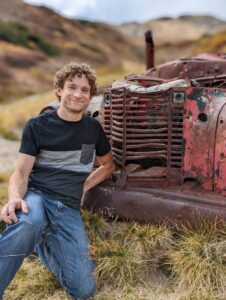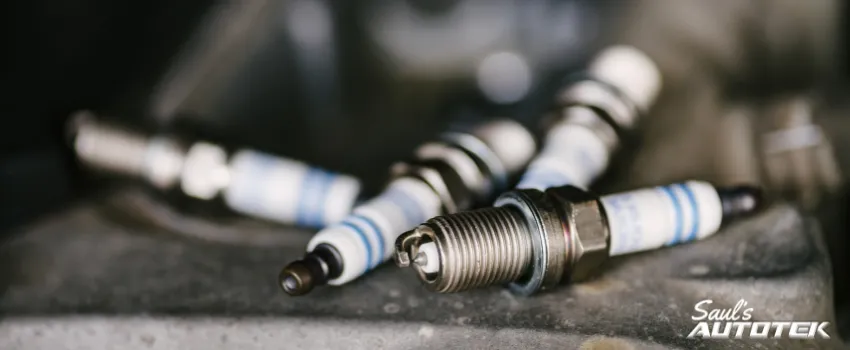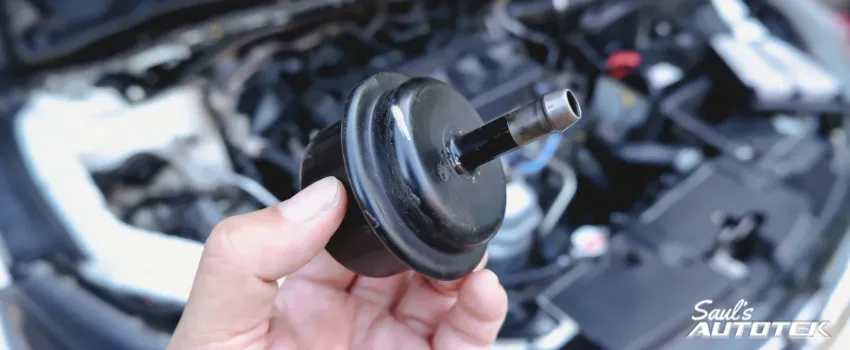One of the least inspected braking systems on your vehicle is typically the parking brake.
As 90 percent of vehicles sold in North America come equipped with automatic transmissions, the majority of us don’t even use our parking brake anymore because we don’t think we need to. Using the parking brake is an easy way to save your transmission from unnecessary wear on your parking prawl. If you have a manual transmission, it’s pretty much mandatory. The way that your parking brake operates is by using a hatted rotor so that the brake actually operates twofold. Standard, caliper, rotor, pads apply to rotate and stop with normal hydraulic pressure but inside we have a different story.
We’ll see this nice shiny ridge around the inside of the hatted portion of the rotor; this is because this rotor is actually acting as a brake drum as well. Inside this drum, there are two parentheses-shaped brake-shoes that will push outward to hold the vehicle in position when the parking brake is applied. The goal of this system is to use mechanical leverage, your arm pulling up or your foot pushing down, to use a cable to pull these tight. That relieves hydraulic pressure from the rest of the braking system so that there is no resting high pressure in any of the lines. This system has some positive attributes and some negative attributes.
The positives being it removes all hydraulic pressure and saves the rest of your braking system; period. Some of the not-so-positive attributes being because this is encapsulated in this hub there’s nowhere for the heat to move or expand to, so often, parking brakes can stick, or bind, or wear out unevenly because of the excess amount of heat that they hold. At the same time, this design is still in use in modern-day vehicles because it makes a perfect emergency backup. It’s a complete second system to stop the same rotating mass efficiently and safely. In almost every state, here in the United States, your vehicle must pass an inspection by the State Police where they will use your handbrake, or emergency brake, to stop the vehicle and it must stop with a 50 percent efficiency of the regular rotating brakes.
This is because it’s operating on only the rear wheels of the vehicle rather than all fours so they don’t anticipate the same performance. This is specifically for your safety. One of the most overlooked parts of your Denver vehicle; period. Because these are internal, many brake shops, when they do a quick brake inspection, will not remove this to physically look inside and inspect the condition of the parts internally. Because they have so many small springs inside, that often corrode and rust away, we typically replace the hardware with these on a regular basis to keep you safe. These parts are very inexpensive, typically five-to-10-dollars, and are some of the easiest to access and reliable to keep your parking brake operational.
If your parking brake needs any maintenance, if you feel like it’s pulling up to high, or simply not engaging; please give us a call.
We’re more than happy to get a look at it and inspect it at any point and at the same time, make sure that when it’s getting addressed, all necessary brake components in that area are as well so that you’re only paying to have your brakes serviced once. Done right the first time. Please, give us a call if you have any concerns about your parking brake. We can be reached here at 303-919-7769. Thank you.
Call us at 303-919-7769 for a FREE brake inspection in Greenwood Village, Denver or any place in Colorado. Anytime. Any Day.
Schedule Your FREE diagnostic Subaru Outback Auto Repair Upkeep and Repair Appointment
Check out Our Reviews On Yelp! And Leave A Great One For Us!
Join Our Conversation on Facebook
Explore Our Exceptional Denver Auto Repair Services
- Brake Repair Service
- Suspension Repair
- Steering Repair
- Engine Repair
- Automotive Air Conditioning and Heating Repair





